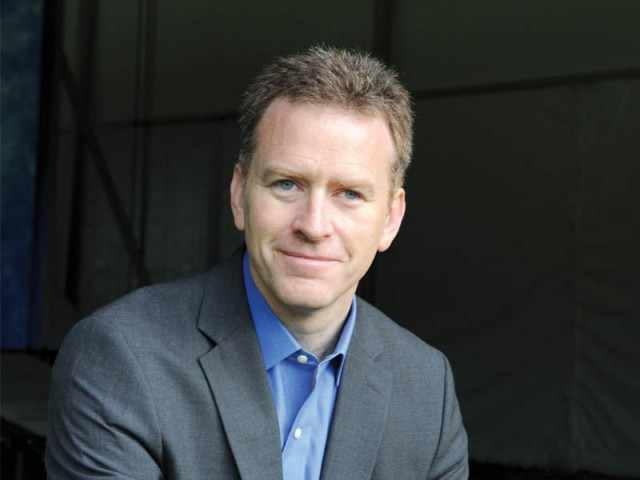Steve Inskeep: There is a heroism to the people of Karachi
National Public Radio host gives Pakisan’s biggest city some credit.

However, most of these efforts tend to centre on the tribal areas, the war, militancy and terrorism. But with the arrival of ‘Instant City’ National Public Radio’s Steve Inskeep has departed from the beaten track by focusing on a city that may have been in the news but has surprisingly not been written about as much.
For Inskeep, it was a matter of common sense and following his reporter instinct. “I was just guided by where the facts led me and what I’ve been following,” he told The Express Tribune in a phone interview during his book tour in the US. “The Americans are interested in the world, and Pakistan, and growing cities in the world.”
The book grew out of his reporting in Pakistan. Inskeep first came to Karachi in 2002 and covered the court hearings in the Daniel Pearl case and later a Shia doctor’s murder. Returning in 2008, he did a series of radio reports for NPR on the city and urban growth. “Karachi represents a lot of things that happen in Pakistan and across the developing world,” he remarked. It was with this perspective that Inskeep drew on his experiences in Karachi to write the book over 18 months.
During his research, Inskeep drew on the books by Yasmeen Lari and her husband, Stanley Wolpert’s biographies of Jinnah and Zulfikar Ali Bhutto. This material was supplemented by visits to the Library of Congress in Washington, DC where he ploughed through the thickly bound original newspapers of Karachi. It with within their pages that he found a different side to Karachi, as exemplified by advertisements for skin-lightening creams called Afghan Snow. Documents from the British era provided glimpses of life in Karachi, such as the living conditions of railway workers from 1946.
But so much has changed, not just since then, but even since Inskeep’s first trip to the city in 2002. “It’s been a dramatic change!” he said, and a swift one. “Some of [the changes] were subtle - you walk out of Karachi’s airport where they have made a new shed, and there are advertisements for Pakistan’s first Shariah compliant credit card.” This was so emblematic because Karachi is a city where people do business no matter what. “The [street]light poles that had ANP flags last year had cell phone ads, and Native Jetty has become Port Grand!... You have people who are making money even in the terrible last two years that Pakistan has had, and it’s a tribute to the city’s spirit.”
Inskeep understands, however, the effect this can have. Frequently, many people in Pakistan complain that foreign correspondents are unable to understand the nuances and dynamics of how Pakistan works, and their stories reflect that. “It’s just such a complicated place, and for Western reporters, it can be hard to get a handle on it,” he explained. “There are so many things happening at once.”
This is why he knew it would be a difficult task to write a book because Karachi is such a massive city and it takes time to wrap your mind around it. “To explain that to American audiences is hard work,” he said. “And it’s also hard to do that in one news story, but it’s a vibrant and interesting place, and that can get missed in some coverage.”
Instant City thus focuses on wide-ranging events and phenomenon - from bomb blasts in Karachi to how the city thrives as a metropolis in a country where terrorism is now a fact of life. The most memorable part of writing the book was taking time to sit down and talk to people at the centre of these flash points such as ambulance service provider and philanthropists Abdul Sattar Edhi and Faisal Edhi or Dr Seemin Jamali who runs the city’s biggest emergency ward. Inskeep found her “inspiring” and in fact a chapter of the book outlines the February 2010 bomb blast at Jinnah hospital’s casualty, hours after which a second bomb was discovered on the premises. “They opened the emergency ward less than 24 hours later. And when I went back to Pakistan and visited it, not only [was] it running, [it had been] improved!”
Inskeep sees that Karachi is a “tragic” place but he feels that “there is a heroism to the people and the way people keep going”. This is what he hopes has come across in the book.
“Insha’ Allah, I will go back to Pakistan - it’s been rewarding to come back again and again to a really important part of the world. While it’s extraordinarily complex, you kind of know what’s happening, and the more time you spend there, you kind of feel like you know what’s going on!”
Published in The Express Tribune, October 28th, 2011.



















COMMENTS
Comments are moderated and generally will be posted if they are on-topic and not abusive.
For more information, please see our Comments FAQ